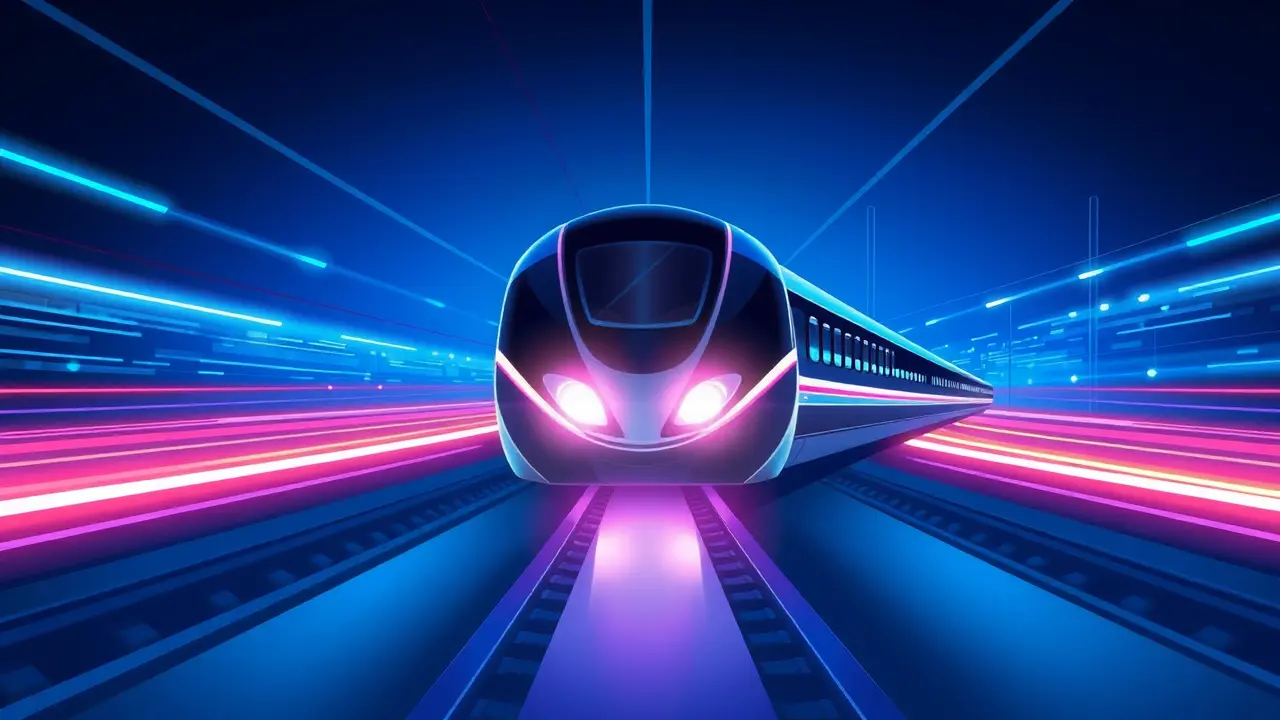
Politicscourts & investigationsCorruption Investigations
Indonesia's Whoosh Railway Faces Corruption Investigation
OL
Oliver Scott
7 hours ago7 min read4 comments
The sleek, aerodynamic profile of Indonesia's Whoosh high-speed railway, a US$7. 3 billion symbol of national pride and Chinese technological ambition, has been abruptly shunted into the grim sidings of a corruption investigation, with the nation's Corruption Eradication Commission (KPK) confirming it is now gathering evidence on alleged irregularities in the project's awarding and management—a probe that analysts warn could implicate senior figures from the administration of the politically dominant former president, Joko Widodo.This isn't merely a local contracting scandal; it's a high-stakes geopolitical gambit now threatening to derail, a flagship initiative of China's Belt and Road Initiative in Southeast Asia that has long been scrutinized for its opaque financing structures and the potential for creating debt dependency. The 'Whoosh' acronym, standing for 'Waktu Hemat, Operasi Optimal, Sistem Hebat' (Time Saving, Optimal Operation, Excellent System), now carries a bitter irony as the KPK meticulously unpicks a deal initially structured as a government-to-business partnership that bypassed standard public tender processes, funneling the massive contract to a Chinese-led consortium.The political risk calculus here is immense: Widodo, who staked his legacy on monumental infrastructure, remains a kingmaker with a powerful political dynasty, and any suggestion of impropriety at the highest levels of his government could fracture the ruling coalition, destabilize market confidence in Indonesia's investment climate, and empower opposition figures who have long criticized the project's ballooning costs and perceived concessions to Beijing. The investigation's tentacles likely extend into the complex web of land acquisition controversies, subcontracting arrangements, and the contentious terms of the loan from the China Development Bank, which reportedly carries sovereign guarantees from the Indonesian state, effectively transferring significant financial risk onto the public balance sheet.For China, a formal corruption finding would be a severe reputational blow, validating long-standing Western critiques of its overseas lending practices and potentially chilling future infrastructure diplomacy across the region, forcing a recalibration of its 'no-strings-attached' approach. The scenario planning for international investors and regional observers must now account for a range of outcomes, from a contained investigation that censures mid-level officials to a full-blown political crisis that ensnares the inner circle of the previous administration, potentially delaying or even jeopardizing the planned extension of the line to Surabaya.This case echoes other Belt and Road controversies from Pakistan to Malaysia, where initial euphoria over Chinese-funded megaprojects gave way to acrimonious renegotiations and corruption allegations, suggesting a systemic pattern rather than an isolated incident. The ultimate consequence may be a fundamental reassessment of how Indonesia, and indeed all emerging economies, negotiate with Beijing, moving towards greater transparency, stricter local content requirements, and more robust legal safeguards to protect national interests—because when a project moves at the speed of Whoosh, the collateral damage from a sudden stop can be catastrophic.
#Indonesia
#corruption probe
#high-speed railway
#China-funded
#Whoosh
#KPK
#Joko Widodo
#featured
Stay Informed. Act Smarter.
Get weekly highlights, major headlines, and expert insights — then put your knowledge to work in our live prediction markets.
Related News
© 2025 Outpoll Service LTD. All rights reserved.








